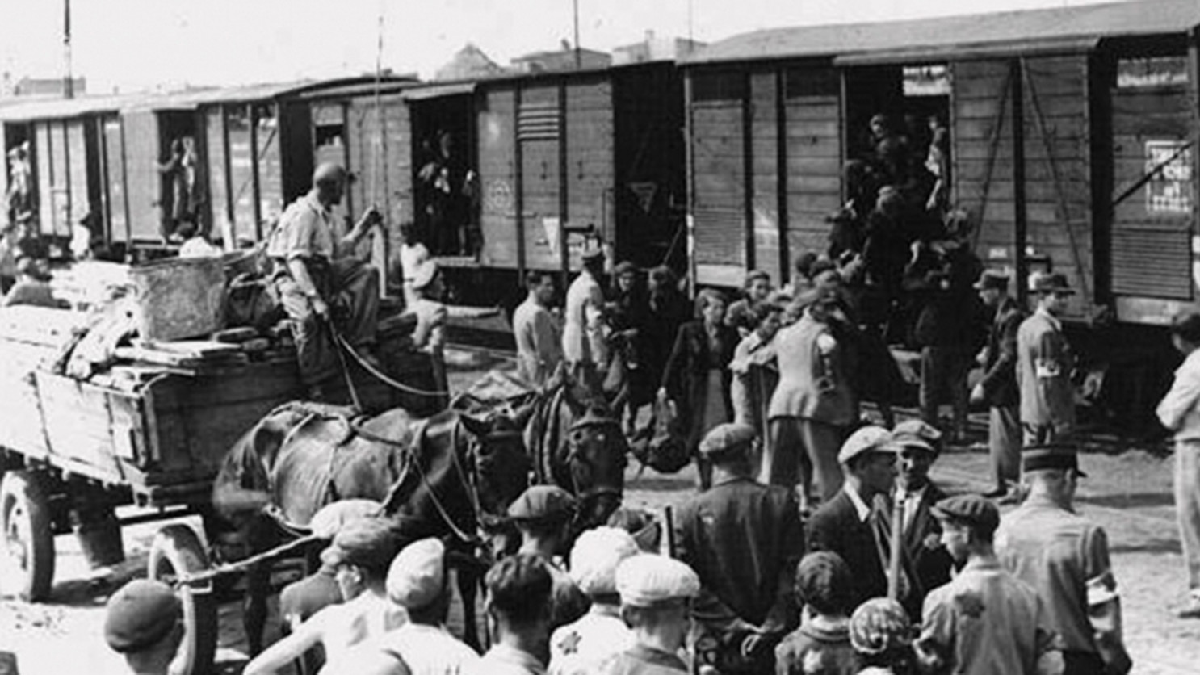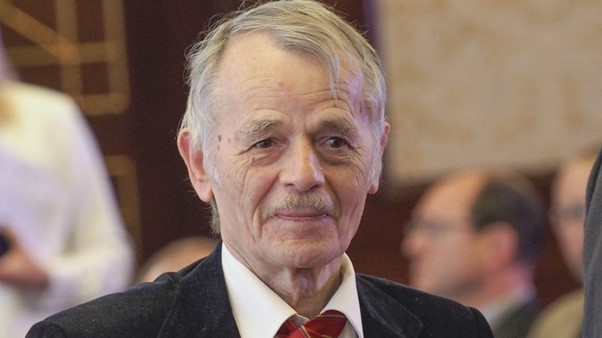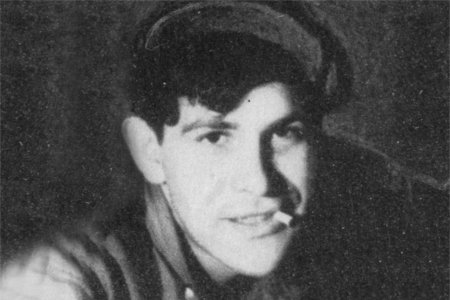
15 minutes were given to leave their homes and board cattle wagons to take the entire Crimean Tatars’ population to Central Asia for eternal exile. Later, Communist authorities stated that 38% of the deportees had perished during this barbarian crime of GENOCIDE. However, census conducted by activists put the tall of victims who perished at more than 46%. It must be taken under account that the overwhelming majority of deportees were small children, women and elderly.
The Soviet authorities tried to justify this crime by mythical treat to state security. However, the deportation of the Crimean Tatars resulted in the abandonment of 80,000 houses and at least resulted in the abandonment of 360,000 acres of land. The deportation also resulted in the abandonment and degradation of vineyards, orchards and tobacco fields.
After the deportation of the Crimean Tatars, the Communists government launched an intense detatarization campaign in an attempt to erase the remaining traces of Crimean Tatar existence including renaming traditional geographical names and distraction of architecture, cemeteries etc.
Until 1989, Crimean Tatars were not allowed to settle in Crimea. Only on November 14, 1989, the Supreme Council of the Soviet Union declared that the deportations had been a crime, and it declared that the ban on their return to Crimea was officially null and void.
Nowadays, the genocide has begun to be internationally recognized. Between 2015 and 2019, the deportation was formally recognized as a genocide by Ukraine, Lithuania, Latvia and Canada.
Of course, it was achieved due to the courage’s efforts of the entire Crimean Tatar nation and their supporters among other ethnic groups. The special tribute belongs to Ukraine for official recognition of Crimean Tatars, Crimean Karaites, and Krymchaks as autochthonous ethnicities of Ukraine.
The struggle for repatriation moved forward a number of heroes. I am proud that I have the chance and opportunity to support that honorable movement. I would like to mention a few names with whom I have chance to have friendly relations. Some of them are no longer with us. I might not be able to mention all of them but I hope they forgive me if missed anybody. I also apologies for not listing the names of all who deserved to be mentioned and remembered for ever but I would say something about the man who became a symbol of honorable fight for rehabilitation and repatriation of unjustly prosecuted peoples, human rights and basic human liberties.
On November 13, 1943, in Ay-Serez, Crimea was born a boy. His parents gave him the name Mustafa. At the time, nobody could predict the deportation and what role newborn Mustafa Dzhemilev will play in the movement of repatriation and rebuilding his nation.
The Crimean tragedy came when Mustafa was just six months old, and he had no personal recollection of months long track to exile. Under the regime of special settlements, the exiles were prohibited to leave, and only social life was limited to visits to the other compatriots in the same settlement. During their childhood, the young Crimean Tatars listened to their older brethren about their native land.
In the late 1950th, so-called activists started petitioning authorities with demands to restore their rightful rights, including repatriation to their native land of Crimea. Mustafa Dzhemilev was one of them. Democratically elected Initiative Groups were delegated to Moscow to appeal to the highest Soviet authorities. Alas, the Communist answer was as predictable as arrests and deportations back to exile.
![© Арвідас Шеметас [депортація, Крим] © Arvidas Shemetas](https://khpg.org/files/img/1608820956.jpg)
Mustafa was forbidden to attend the university according to his chosen specialty and had to enlist in engineering institute. But in his third year of study, he was expelled and called to be drafted into the Soviet Army. He categorically refused to serve and was given his first prison term. It was his first but not the last. Between 1966 and 1986, Dzhemilev was arrested six times for anti-Soviet activities and served time in Soviet prisons and labor camps. He also lived in eternal exile and under constant KGB surveillance. Several times, he went on hunger strikes. His first, a month-long hunger strike, took place in Tashkent prison after the case of Petro Grigorenko, Ilia Gabay and Mustafa Dzhemilev. However, his unprecedented 303 days long hunger strike, which happened to be the longest hunger strike in the history of human rights movements. He survived it only due to forced feeding.
Right after the arrest of General Petro Grigorenko, Mustafa Dzhemilev became one of the founding members of The Initiative Group for Defense of Human Rights.
After the collapse of the Soviet Union and renovation of independence of Ukraine, Dzhemilev is a worldwide known Ukrainian politician. He was elected to the first democratically elected Ukrainian parliament and reelected in all subsequent convocations.

At the same time, Mustafa had never abandoned the struggle of his people and was elected the President of Mejlis, national wide representation of the Crimean Tatars people.
For his civil and political activities, he was highly decorated and praised.
In the Ukrainian Parliament (Verkhovna Rada), Dzhemilev is a Deputy from the party of European Solidarity. He also is a member of the Committee on Human Rights, Deoccupation and Reintegration of Temporarily Occupied Territories in Donetsk, Luhansk Regions and Autonomous Republic of Crimea, the city of Sevastopol, National Minorities and Interethnic Relations.
Nowadays, Mustafa Dzhemilev and many of other Crimean Tatars are living in exile from their beloved Crimea. On that tragic day, all civilized Humanity hopes for speedy Victory of Ukraine in its war against Moscow colonialism. Let us join to that hope and restoration of Crimean nation on their native democratically ruled land.
Andrew P. Grigorenko
May 16, 2024



